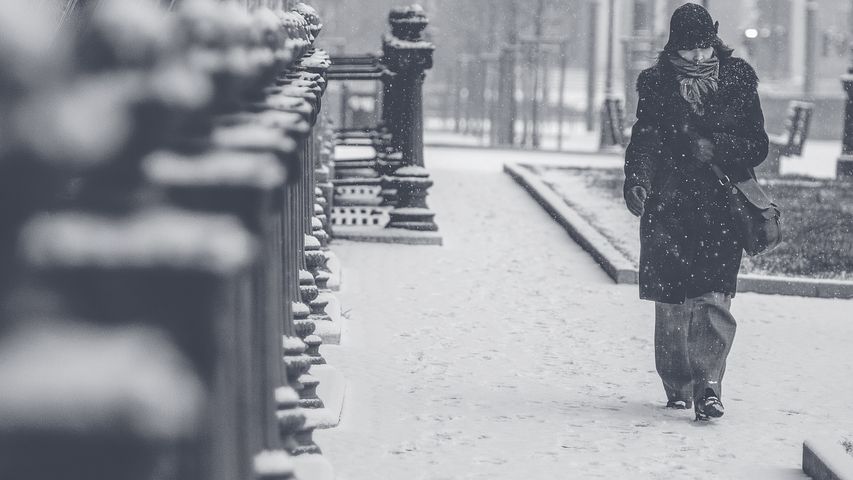 There are two things to love about winter: how the whole scenery shines under a blanket of snow, and the anticipation of spending the holidays with the people that matter the most to you. But either than that, winter is an inconvenience to most people. Dry winter air is not just a nuisance but can pose a real threat to your health. If you want to combat the effects of dry winter air, here are some suggestions on how to make it better.
There are two things to love about winter: how the whole scenery shines under a blanket of snow, and the anticipation of spending the holidays with the people that matter the most to you. But either than that, winter is an inconvenience to most people. Dry winter air is not just a nuisance but can pose a real threat to your health. If you want to combat the effects of dry winter air, here are some suggestions on how to make it better.
Skin Moisturizing
Whether you suffer from dry skin all year round or experience these symptoms only during the winter, moisturizing your skin is always a good idea. Use an oily body cream every day, preferably after taking a short shower. While tempting, it’s best to avoid long hot baths, because the hot water can actually dry your skin even further. You can use a natural moisturizer (those based on coconut oils are really effective), right after drying your skin with a tower. This helps trap the moisture on your skin.
Raising Humidity
A very frequent winter phenomenon is having extremely dry air inside your home. This is caused by the cold season, as well as the heating system inside your home. Thankfully, there are viable and affordable devices that can help you raise the humidity level inside your home. While some people use some old-fashioned methods to solve this problem (such as recipients with hot water placed throughout the house), you can always use a humidifier.
This device is based on a mechanism that uses the water in its recipient to release a warm or cool mist, which helps humidify the air. Alternatively, you can also opt for a diffuser humidifier. This little gizmo acts both as a humidifier, as well a natural oil emission device. With a few drops of aromatherapy natural oils, the diffuser releases scented oil fragrances into the room, adding both moisture and a pleasant smell to the ambiance. Be careful: as not every humidifier doubles as a diffuser, so carefully read the specs before buying one.
Home Preparation
During the winter, you want to avoid dry air from getting inside the house as much as possible. This means that you have to identify all the “leaking” spots and seal them shut. Sometimes, cold air can get inside simply because the house is not insulated properly. Try to identify if there are any leaks near doors or windows and seal them. There air leaks are also found in attics, cellars, air vents, and crawl spaces. By making sure there aren’t any air leaks, you will also save money on your heating bill.
Sinus Problems
One of the major problems with winter dry air is how it affects your sinuses. When you breathe cold and dry air, your mouth and nose lose their natural moisture. This means that your sinuses will be left dry, and you’ll start experiencing pain in your throat and nose. The natural moisture inside your nasal passages is responsible with keeping contaminant out of your system. Alternatively, you are more exposed to viruses that cause colds, the flu, and sinus infections.
Naturally, people are tempted to turn up the thermostat and heat up the indoor air even further. What they don’t realize is that this leads to a great production of dust and allergens that can further damage the sinuses. In these situations, you might want to consider using an air purifier. However, some homes have furnace systems in place, which use an air filter to trap these airborne contaminants. If possible, make sure that your system that an air filter with a higher MERV rating, which basically means that it has a higher capacity of trapping the vast majority of contaminants that circulate through the air.
Staying Hydrated
Summer or winter, staying hydrated is something that should be part of your daily routine. Most people think that their bodies lose a lot of water during the summer, but the very same thing could happen during the cold winter months, as well. Don’t let your body lose more moisture than it has to. Staying hydrated is even more important if you’re suffering from health problems that get worse during the winter (such as arthritis, a joint inflammation that gets worse once barometric pressure rises during the winter).
Conclusion
Of course, nothing beats the playful laughter or children making snow angels, or the cozy feeling you get when crawling in front of a fireplace, but one must never forget that winter is a very harsh season. Dry winter air is the cause of breathing and skin-related problems, but also cause damage on other fronts. It can lead to exaggerated heating bills, indoor plants dying out because they lack moist air, and even furniture cracks, due to the same phenomenon. Thankfully, there are all the problems that a good humidifier can fix.





Leave a Comment